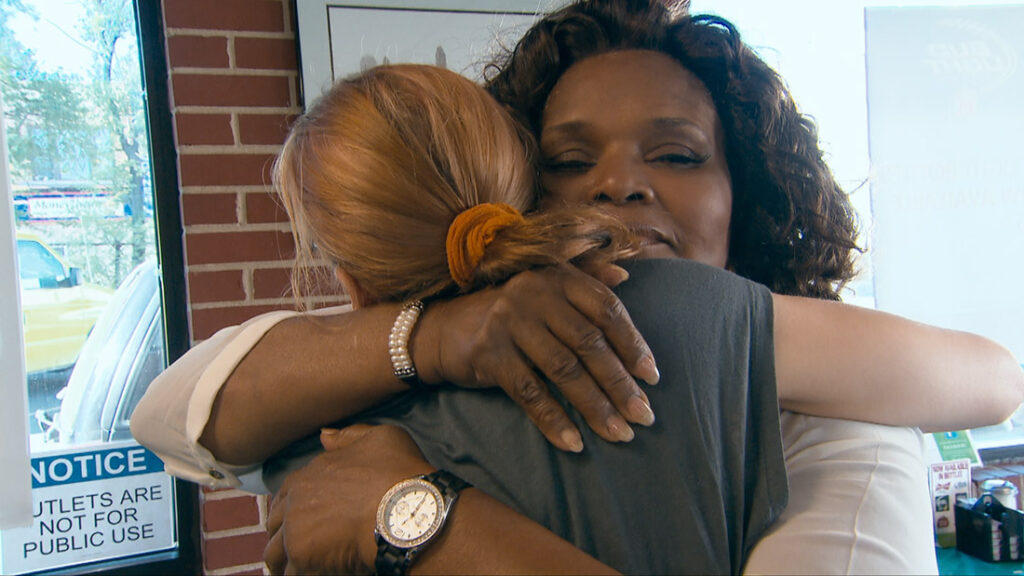By the end of Kim Longinotto’s harrowing “Dreamcatcher,” I
could barely catch my breath. I told myself that it was just emotional overload
after one story of human suffering too many for me to take. And then I realized
that the subject of this film, the heroic Brenda Myers-Powell, hears these
stories, and likely much worse, every single day. And she pushes forward, doing
humane, difficult work in communities that so many have given up on decades
ago. She is an inspiration, and a reminder that we need people out there
willing to hear the difficult stories, catch their breath, and then do something about it.
Myers-Powell works at the Dreamcatcher Foundation, a group
on the South side of Chicago that’s trying to save the women and girls of this
beautiful city. The film opens with her traveling some of the darker streets of
the Windy City in the middle of the night, looking for prostitutes. She’s not
going to pull them off the street. It’s not that easy. Instead, she’s offering
condoms; she’s offering an ear to hear their stories; she’s offering support. For
the next 90 minutes, we’ll hear many of those stories with Myers-Powell, some
of which are nearly too heartbreaking to take. Brenda comes from the life
herself, surviving horrible violence after years on the street as a
drug-addicted prostitute. She knows what the people who now stand in the shoes
she once did needs—they need someone to listen to them. And the stories of abuse at the hands of pimps or johns are terrifying. Hollywood often presents images of prostitution that disguise the true horror. And Myers-Powell’s approach could best be summarized in something she says to one of the girls she encounters, something these people don’t hear enough, if ever: “You deserve to be happy.“
Longinotto employs a documentary style that mimics
Myers-Powell’s approach in its lack of obtrusiveness and judgment. She lets
scenes play out in real time, never employing narration, title cards, etc. In
many instances, it feels like we’re at the table with Brenda and a girl she’s
trying to save. Both the filmmaker and the subject let people tell their
stories without interruption, judgment or interjection. The film never
sensationalizes or overdramatizes, just like the people of the Dreamcatcher
Organization. In that sense, it’s very much like last year’s most impactful
Sundance documentary, the unforgettable “Private Violence,” another journey
into a dark corner of the world that too many of us would like to think doesn’t
exist.
As hard to take as some of the stories are in “Dreamcatcher,”
the cumulative impact is inspirational. What do people at the bottom of their
personal barrels need more than anything? To be spoken to with respect, without
judgment, and with grace. That’s what the people of Dreamcatcher understand,
and Longinotto’s film allows that message to resonate beyond just the subject matter
of this particular film. In telling a very specific story about people on the
edge of tragedy in Chicago, she’s made a film that allows us to see all of
humanity anew, both the darkness that we choose to ignore and the
light trying every day to shine its way into it.
(Disclosure: The Ebert Foundation contributed a small grant to
the post-production of this film.)











